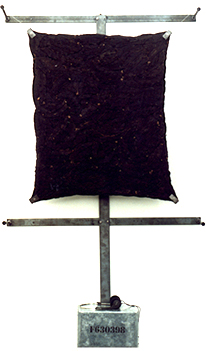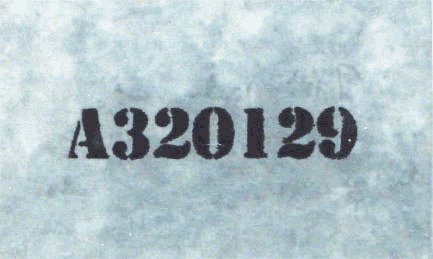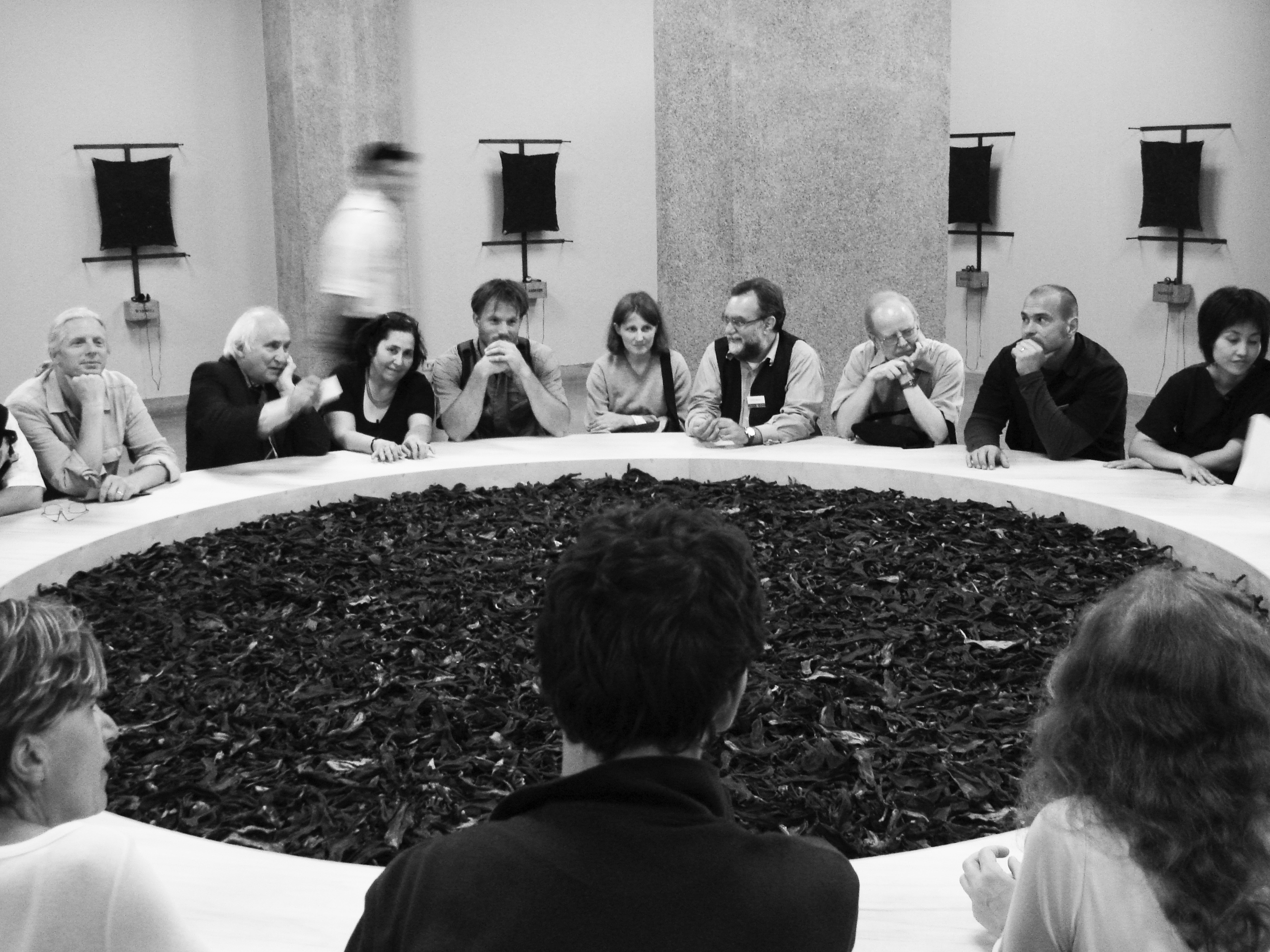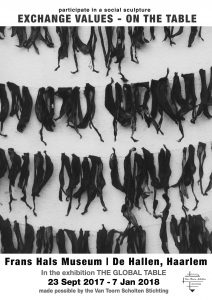Homehttp://exchange-values.org/
The numbers above, found on banana boxes in supermarkets, correspond to a human being or family, who grew a particular box of bananas.
Through the lens of bananas, Exchange Values, enables explorations of an eco-social future.
CLICK to LISTEN to the voices of the farmers who grew each box of bananas.
SEE the corresponding ‘sheets of skin’ made of dried banana skins from 20 numbered boxes.
DISCOVER the decades long project story and the 10,000 unnumbered skins that are part of this social sculpture arena.
FIND OUT more about the ASSEMBLIES that take place in the social sculpture arena.
LEARN about the ‘connective practice’ used in the assemblies and processes at the 5 meter round table.
Exchange Values: On The Table [formerly ‘Exchange Values: Images of Invisible Lives] is a long-term social art initiative exploring interrelationships in the global economy through the lens of the banana. Its present form began in the early 1990’s and is still continuing… An earlier form began in 1970 with one banana skin!
Through the lens of bananas, Exchange Values, enables us to explore ways to move toward an eco-social future.
It is a participatory social sculpture arena that creates an assembly space for exploring alternative forms of and relationships to food, agriculture, each other and to the dominant global political-social-economic forces.
Specially designed ‘connective practices’ enable new understandings and new narratives to be explored in the assemblies.
Connective Practice methods involve imaginal thinking, connect individual and collective insight and action, and enable new eco-social narratives.
Exchange Values explores ways to move from colonialism, conquest & control to cooperation, consciousness & care.
It focuses on different themes including:
> Racial capitalism and environmental racism
> The Future of Work, The Future of the Human Being
> Regenerative thinking, response-ability and connective practice
> Agroecology and the role of the consumer as the contract giver
Exchange Values has been installed in 12 venues in different countries and contexts since 1996 and is ongoing. If you would like to discuss presenting Exchange Values on the table, please contact Shelley Sacks or the Social Sculpture Lab.
E-mail: Shelley Sacks ssacks@brookes.ac.uk or info@socialsculpturelab.com
Introduction to the project
Exchange Values is a social sculpture process and arena for exchange in collaboration with farmers from the Windward Islands and their organisations.
It creates a ‘permanent conference’ about how we live our lives, our relationship to global trade, slavery and trade agreements and to questions about decolonisation, racial capitalism, the lenses we see through and ‘mind-shift-work’. It also explores the connections between imagination, responsibility and lived experience, and activates our ‘ability-to-respond’.
20 stitched ‘sheets of skin’ from 20 small farmers
These ‘sheets of skin’ from 20 randomly selected boxes of Windward Island bananas form the basis of the installation. Shelley Sacks traced each box of bananas – from the grower number – back to its origin in the Caribbean and invited the growers into a social sculpture process. The growers then recorded statements and reflections that consumers would hear, with each specific ‘sheet of skin’. of the growers. These recordings accompany each sheet of skin.
Envisioning an eco-social world
Through the situation of the banana producers and the effects of ‘free trade’ in one particular region of the world, EXCHANGE VALUES invites an exploration of the interconnections between producers and consumers in our complex global economy and our roles as ‘social artists’ in creating new narratives and envisioning an eco-social world.
To hear the growers click a number in the two columns above.
Exchange Values on the table
Many iterations
EXCHANGE VALUES has always created arenas for dialogue and for ‘imaginative work’: in the Windward Islands with farmers and their organisations since the early 1990s, and in all 14 venues where the Exchange Values installation was presented between 1996 and now. These dialogues have brought together and engaged consumers, farmers, NGOs, activists, teachers, ecologists, artists and others from many disciplinary backgrounds in challenging reflections and imaginative exchanges. [See
A space for emergent thinking and connective action
In 2007 two new elements were added to the original EXCHANGE VALUES: Images of Invisible Lives. One is a huge round table. The other element is a ‘connective practice’. ‘EXCHANGE VALUES on the table’, as it is now known, is, however, in many respects the same as the original project. But with two significant differences. A 5-meter round table – filled with thousands of skins from unknown producers – takes the place of the 10,000 unnumbered skins that were once laid out on the floor. A permanent space for dialogue and exchange is highlighted as an integral part of the social sculpture. Every person who enters the space becomes a participant, whether or not a planned forum is in progress. And the ‘connective practice’ used to shape the fora opens up a way of thinking together that enables emergence, and connects the inner field of the individual with the group and new understanding with outer social actions.
A place of new vision towards connective action
Exchange Values is a powerful example of what Joseph Beuys described as the ‘permanent conference’. ‘Visitors’ quickly become aware that they are not visitors in the global economy. Each of us on the planet is engaged in complex relations with people and other life forms. And Exchange Values provides the connective practice and arena to explore this.
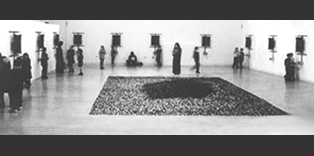
Research on EXCHANGE VALUES began in 1992. For nearly three decades – in 14 international venues – it has brought together a whole spectrum of people: activists, farmers, economists, government ministers and officials, ecological campaigners, artists, psychotherapists, engineers, cultural geographers, writers and of course, consumers. Its most recent venue at the Frans Hals Museum included a focus on ‘The Future of Work’ and ‘Moving beyond Monocultures’.
Over 100 ‘social sculpture’ forums have taken place during the social sculpture since 1996: whilst collecting the skins from members of the public over two weekends in the centre of Nottingham, where free bananas were given out in exchange for their skins; in the Windward Islands with growers and sustainable development activists, and in the social sculpture ‘connective practice’ processes that take place in the physical installation in each venue.
Here, at the table and in the installation, we can begin to live into the questions and let the images and experiences work in us before individuals share their insights with others as the basis for working together to collectively produce ‘social honey’.
This experiential-reflective process is designed to mobilise us internally and enhance our ability-to-respond.
Poster [front]: Exchange Values on the Table in Haarlem, 23 Sept 2017 to 7 Jan 2018
DOWNLOAD POSTER AND LEAFLET in English. Exchange Values Poster in Dutch.
